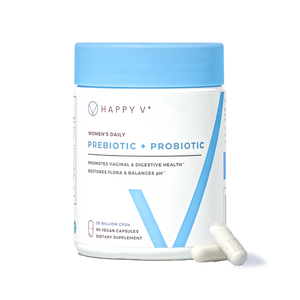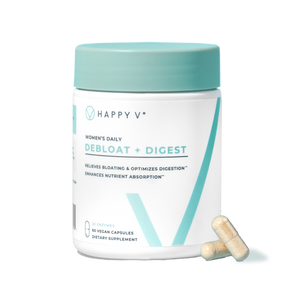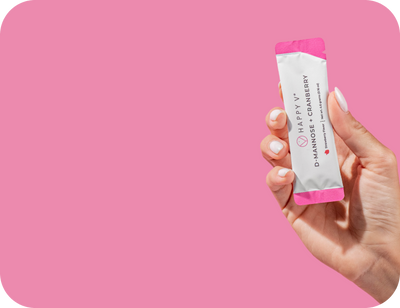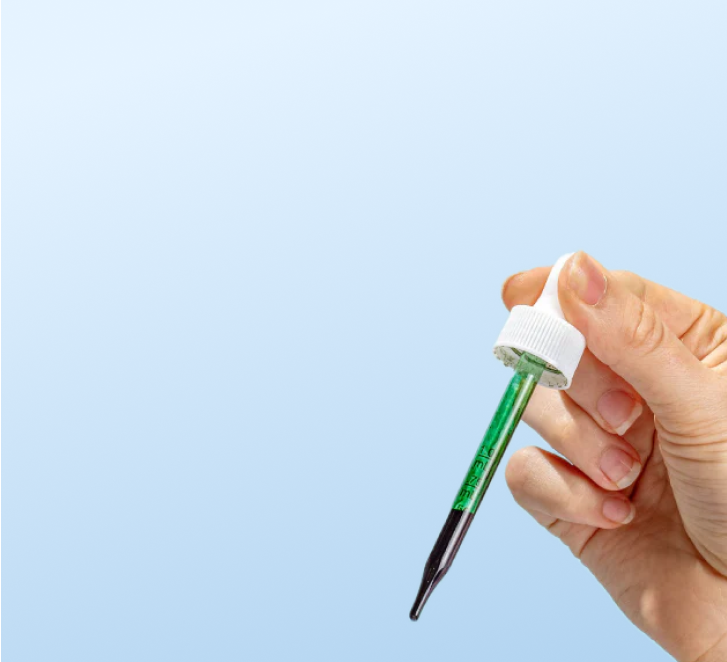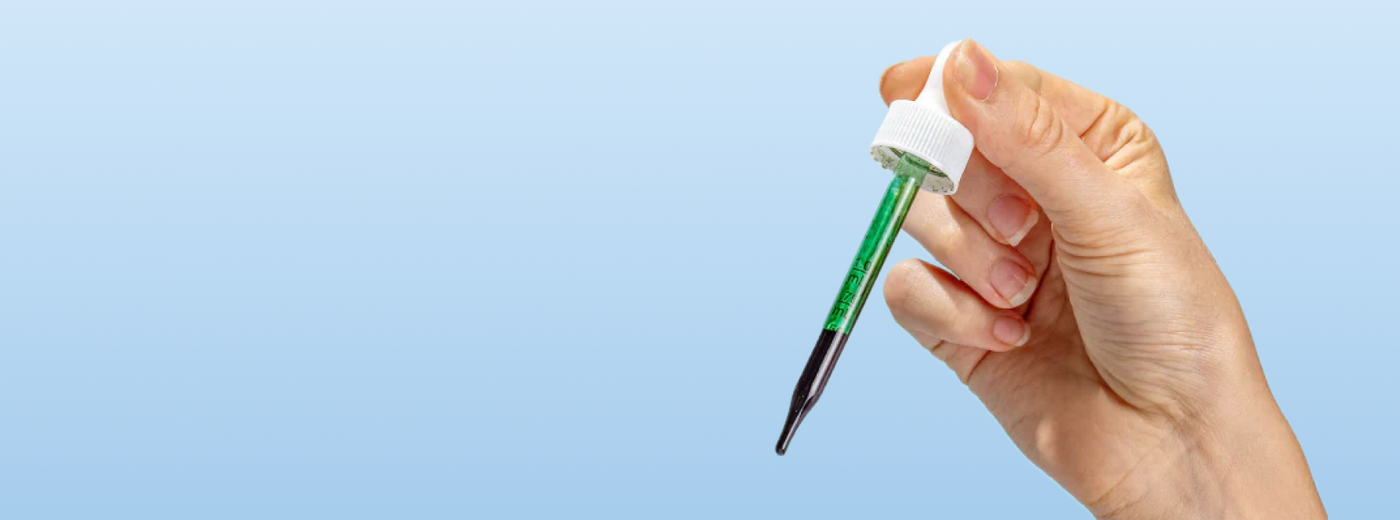- Fact Checked
- November 10, 2025
- 10 min read
What Causes Night Sweats? Clues and Comfort Strategies
Table of Contents
Table of Contents
You know that feeling—waking up in the middle of the night, sheets tangled, hair damp, pajamas clinging like you just ran a marathon in your sleep. It’s more than uncomfortable; it’s exhausting. Night sweats can leave you feeling frustrated, foggy, and wondering what’s going on with your body. But here’s the truth: you’re not alone, and you’re not “overreacting.”
Millions of people deal with night sweats, and while they can feel overwhelming, they’re usually your body’s way of sending up a flare that something’s shifting, whether it’s hormones, health, or even just your environment. Luckily, there are ways to pinpoint the cause of your night sweats so you can get your nights (and your rest) back.
This post is for informational purposes only and does not constitute medical advice. See full disclaimer below.
Perimenopause and Menopause: The Leading Ladies of Night Sweats
Hormonal changes during perimenopause and menopause are the leading cause of night sweats for women1. In fact, up to 85% experience these vasomotor symptoms, making them one of the most recognizable signs of this life stage.
If your night sweats are showing up alongside other classic menopause signals like hot flashes during the day, irregular cycles, or sleep disruptions, hormones are likely playing a central role. And if these sweats are starting to interfere with your rest or quality of life, don’t worry. We’ll cover proven strategies for finding relief in just a bit.
What’s Happening in Your Body
In the 4–8 years leading up to menopause (known as perimenopause), your hormones are in constant flux. Shifts in estrogen and progesterone can throw off your body’s internal thermostat, causing those middle-of-the-night heat surges that have you tossing off the covers. At the same time, your follicle-stimulating hormone (FSH) rises as your ovaries work harder to keep hormone production going, creating the perfect setup for hot flashes and night sweats.
These episodes aren’t just random discomforts; they’re your body’s way of adjusting to a new hormonal balance. The same process that sparks daytime hot flashes can feel even more intense at night when you’re still, cozy under blankets, and more likely to notice every temperature swing. Even shifts in your menstrual cycle can play a role in how your body regulates heat throughout the month.
Other Common Causes of Night Sweats
While menopause takes the spotlight, numerous other health conditions can also trigger night sweats. Knowing what to look for can help you and your healthcare provider pinpoint the underlying cause more quickly.
Hormonal Changes Beyond Menopause
Night sweats can also stem from other hormone-related shifts2. Primary ovarian insufficiency (POI), when the ovaries stop functioning before age 40, is one example3. Pregnancy may bring on night sweats too, thanks to dramatic surges in estrogen and progesterone. And for some, increased sweating shows up around their cycle, linked to PMS or the more severe premenstrual dysphoric disorder (PMDD).
Infections and Immune System Issues
Your body's natural response to fighting off infections often includes fever and excessive sweating. Tuberculosis is a classic cause of night sweats4, but bacterial infections like endocarditis (heart valve infection) and osteomyelitis (bone infection) may also be culprits.
If your night sweats come with lingering fevers, unexplained chills, or fatigue, an infection may be worth exploring5. Even common viral illnesses like a cold can bring on sweats as your body temperature fluctuates.
Whatever the exact infection, if you notice joint pain, chronic inflammation, or unexplained fatigue along with sweating, your immune system may be involved.
Metabolic and Endocrine Disorders
Hormonal and metabolic imbalances can throw off your body’s thermostat. The most common include:
- Hyperthyroidism: When the thyroid is overactive, it speeds up your metabolism, often leading to sweating day and night6. If you’ve also noticed a rapid heartbeat, unexplained weight loss, or restlessness, your thyroid could be the key.
- Diabetes: Nocturnal hypoglycemia (low blood sugar at night) can trigger sweating episodes7. If you wake up sweaty and shaky, or feel relief after eating something sugary, low blood sugar may be at play.
- Hypogonadism: Low sex hormone levels in men and women can affect temperature regulation. Symptoms like reduced libido, irregular cycles, or low energy may help point to this cause8.
- Autonomic neuropathy: When nerve damage affects how sweat glands work, patterns of sweating may change9. This is more common in people with long-standing diabetes or neurological conditions.
Sleep Disorders and Related Issues
Obstructive sleep apnea doesn’t just cause snoring; it can also cause night sweats10. If your partner notices pauses in your breathing, or you wake up gasping and groggy despite a full night in bed, apnea might be involved. Other sleep disorders, like frequent nighttime awakenings, can also contribute to excessive sweating.
Medications and Substances
Night sweats can sometimes be traced back to your medicine cabinet. Common culprits include:
- Antidepressants (SSRIs): Sweating can show up shortly after starting or changing doses11.
- Hormone treatments: Antiandrogens, aromatase inhibitors, and GnRH agonists may affect temperature control.
- Blood pressure medications: Drugs like clonidine and angiotensin II receptor blockers can cause sweating at night.
- Opioid pain medications: Methadone and others may alter your body’s heat regulation12.
- Other medications: Corticosteroids, anticonvulsants, and thyroid supplements can also play a role.
If you notice a connection between starting a new medication and the onset of night sweats, talk to your provider. They may be familiar with this side effect and can help you find relief.
Other Medical Conditions
Several other conditions may be hiding behind your night sweats. These are less common but important to be aware of, especially if hormonal shifts and medications are not behind your symptoms:
- Certain cancers: Though less common, blood cancers such as lymphoma and leukemia can cause night sweats13, often alongside red-flag symptoms like unexplained weight loss, persistent fevers, or swollen lymph nodes. Cancer treatments themselves may also contribute.
- GERD (acid reflux): If sweating happens alongside heartburn or nighttime coughing, reflux could be the culprit14.
- Hyperhidrosis: If you’ve always dealt with excessive sweating that worsens at night, a sweating disorder may be responsible15.
- Anxiety disorders: Racing thoughts, a pounding heart, and a restless mind can all trigger your body’s fight-or-flight sweat response during sleep16.
- Spinal cord injuries: These can alter how your nervous system controls sweating, leading to unusual nighttime patterns17.
Getting to the Bottom of Your Night Sweats
If night sweats are happening often enough to disrupt your sleep, your healthcare provider will usually start with the basics. A detailed health history and physical exam are the first steps, focusing on when your symptoms occur, what seems to trigger them, and whether you have other common signs, like hot flashes, fevers, or changes in your cycle, that point to a likely cause.
From there, your provider may order some straightforward tests to rule out common issues:
- Blood counts to check for infections or general imbalances
- Thyroid-stimulating hormone levels to look for an overactive thyroid
- Blood glucose monitoring to see if low blood sugar or diabetes could be at play
- C-reactive protein levels to assess inflammation in the body
If your symptoms or history raise red flags, less common tests may be considered. These can include HIV or tuberculosis testing if risk factors are present, chest imaging to check for lung conditions, or, in rare cases, a bone marrow biopsy to investigate blood cancers.
Keeping a simple symptom diary, tracking when sweats happen, how severe they are, and any patterns you notice, can make these conversations and evaluations far more productive.
Finding Relief and Managing Night Sweats
No matter what’s driving your night sweats, there are plenty of ways to find relief and start sleeping comfortably again. Sometimes small shifts in your routine make a big difference, and other times a more targeted approach is needed.
Lifestyle Tweaks That Help
Creating a cooler, more breathable sleep environment can go a long way toward easing nighttime sweats. To improve your sleep quality:
- Choose lightweight bedding and loose, breathable pajamas.
- Keep your bedroom cool with a fan, AC, or thermostat adjustments.
- Try cooling mattress toppers or moisture-wicking sleepwear for extra comfort.
- Avoid common triggers like alcohol, caffeine, or spicy foods close to bedtime.
Calming Stress Before Bed
Because stress can amplify night sweats, winding down matters. Practices like deep breathing, meditation, gentle yoga, or progressive muscle relaxation before bed can help calm your nervous system, reduce sweating episodes, and set the stage for more restful sleep.
Medical Treatment Options
When symptoms are more severe or persistent, medical treatments may be recommended:
- Hormone therapy: Estrogen and progestin can be very effective at reducing hot flashes and night sweats.
- Non-estrogen medications: Several FDA-approved options may help when hormone therapy isn’t appropriate.
- Menopausal hormone treatment (MHT): Tailored approaches based on your personal health history and needs.
For non-hormonal causes, addressing the root issue—whether that’s adjusting a medication, treating sleep apnea, or balancing blood sugar—often brings night sweats under control.
Supplements for Support
Many women turn to supplements for extra support, especially when they want natural options to ease symptoms.
Research points to several ingredients with proven benefits for managing hot flashes, night sweats, mood shifts, and sleep challenges during menopause, including:
- Black Cohosh – traditionally used to reduce hot flashes and night sweats18.
- Soy Isoflavones – plant-based compounds that mimic estrogen to help balance hormonal changes.
- Red Clover – rich in phytoestrogens that may ease vasomotor symptoms like flushing and sweating19.
- Vitamin B Complex – supports energy, mood stability, and stress management.
- Magnesium – promotes relaxation, deeper sleep, and muscle comfort20.
- Melatonin – helps regulate sleep cycles for more restorative rest21.
- Ashwagandha – an adaptogen that supports stress resilience and balanced energy.
Happy V Menopause Relief AM + PM combines these proven ingredients into a unique dual capsule system. The AM formula focuses on energy and mood support, while the PM formula delivers cooling relief and promotes restful sleep, giving you around-the-clock care without the need to piece together multiple supplements.
When to Seek Medical Advice
While night sweats are often benign, certain warning signs warrant prompt medical advice from your health care provider. These include:
| Symptom Type | Symptom |
| Red flag symptoms | Fever |
| Unexplained weight loss | |
| Cachexia (severe weight and muscle loss) | |
| Physical findings | Lymphadenopathy (swollen lymph nodes) |
| Pallor (unusual paleness of the skin) | |
| Petechiae (small red spots) | |
| Palpable nodes | |
| Concerning symptoms | Oral lesions |
| Mucosal erosions | |
| Signs of infections like candidiasis (yeast infections) |
Early evaluation can help identify treatable causes and get you back to sleeping comfortably.
Final Thoughts
Night sweats are one of the most common sleep complaints, especially among women going through hormonal changes during menopause. With the right approach to identifying causes and implementing effective management strategies, most people find significant relief and improved wellness.
Whether your night sweats are related to menopause, medications, or other health conditions, there are solutions available. Working with your health care provider to develop a personalized treatment plan can help you reclaim your restful nights and wake up feeling refreshed rather than drenched.
Sweeter dreams are possible—and you deserve them!
Keep the Conversation Going
- Visit our blog for more on BV treatment options and women's health tips.
- Join our private Happy V Facebook group to hear from others who've been there.
- Explore supplements designed to support your vaginal health journey.
Disclaimer: This blog is for informational and educational purposes only and is not intended to diagnose, treat, cure, or prevent any disease. Statements about supplements have not been evaluated by the Food and Drug Administration. For more information about vaginal infections, visit the CDC or speak to a licensed healthcare provider.
